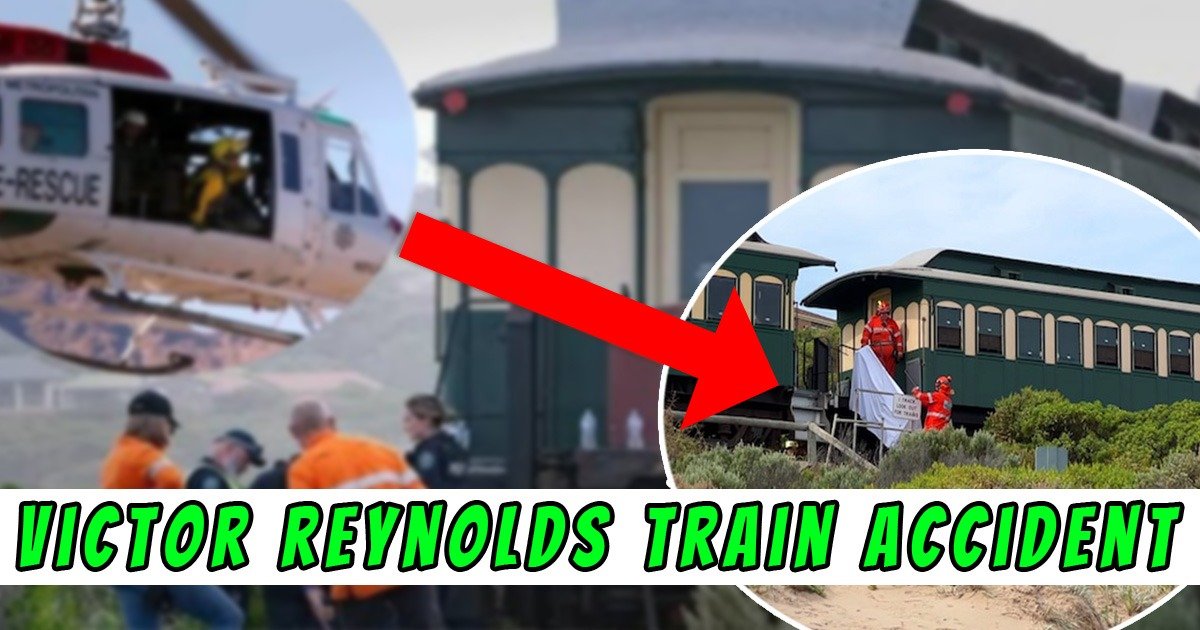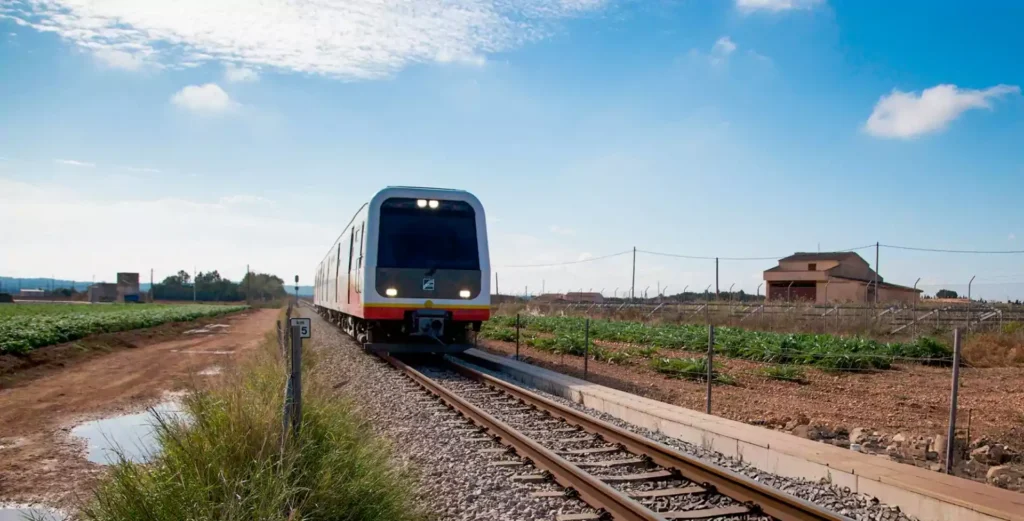On a quiet April morning in Churchill County, Nevada, a tragedy unfolded that would send ripples through the small community and beyond. The Victor Reynolds train accident, now etched into public memory as a cautionary tale of negligence and systemic flaws, raises profound questions about railway safety, accountability, and the human cost of modern transportation systems. It’s a story that transcends its immediate locale, drawing parallels to other high-profile disasters and exposing vulnerabilities within an industry often perceived as infallible. The narrative surrounding this incident is riddled with contradictions, leaving investigators, authorities, and the public searching for answers amidst a sea of speculation.
The accident occurred in Churchill County, Nevada, where Victor Reynolds was discovered in a harrowing state beside the railroad tracks. Railroad workers stumbled upon the gruesome scene, prompting immediate action from local law enforcement. Deputy Ty Nelson, responding to the call, arrived at the scene via train, adding layers of complexity to the unfolding tragedy. Initial reports painted a grim picture, suggesting a fatal incident that sent shockwaves through the community. Sheriff Richard Hickocks later recognized Deputy Nelson’s efforts, awarding him a commendation for his service during the crisis. However, the central question that persisted was whether Reynolds survived the devastating encounter. This uncertainty became the focal point of subsequent investigations and public discourse.
| Category | Details |
|---|---|
| Full Name | Victor M. Reynolds (Note: There may be confusion with another individual, Victor Reynolds Nevada) |
| Date of Birth | August 1963 (Wisconsin native) |
| Location at Time of Incident | Allegedly struck by a train in Churchill County, Nevada (April 2024) |
| Marital Status | Recently separated from his wife (as per some reports) |
| Occupation | Potentially Retired Police Officer (Assistant Chief for the City of Magnolia Police Department - conflicting with accident reports) |
| Circumstances of Incident | Reported dismembered beside railroad tracks after being struck by a train. Conflicting reports exist regarding survival. |
| Location of Obituary | Lewis Funeral Home (for Victor M. Reynolds who passed away on May 20, 2024 - potentially different individual) |
| Related Incidents | Confusion exists with another Victor Reynolds from Nevada who was involved in a train accident and became a double amputee. |
| Official Sources | National Transportation Safety Board (NTSB) (For information on train accident investigations and safety recommendations) |
As the investigation progressed, further details emerged, complicating the narrative even further. Victor Reynolds, born in August 1963 in Wisconsin, had a storied career as a police officer, serving as the Assistant Chief for the City of Magnolia Police Department. His recent separation from his wife added another layer of intrigue, fueling speculation about potential motives or mental health concerns that might have contributed to the tragic event. However, these personal details remain speculative, with investigators cautious not to jump to conclusions without concrete evidence.
- Emily Compagno The Rising Star In Media And Politics
- Zahn Mcclarnon Wife The Untold Story Behind The Actors Personal Life
The incident in Churchill County is not an isolated case. Across the United States, railway accidents continue to occur, often with devastating consequences. The National Transportation Safety Board (NTSB) has repeatedly highlighted systemic issues within the railway industry, including outdated infrastructure, inadequate safety protocols, and insufficient training for personnel. The Victor Reynolds accident serves as a stark reminder of these ongoing challenges, prompting renewed calls for reform and increased investment in safety measures.
Comparisons to other high-profile railway accidents inevitably arise, such as the 2015 Amtrak derailment in Philadelphia, which claimed eight lives and injured over 200 people. That tragedy brought national attention to the need for Positive Train Control (PTC) systems, technology designed to prevent accidents caused by human error. Despite widespread adoption of PTC in recent years, incidents like the one involving Victor Reynolds underscore the persistent risks inherent in railway operations. Critics argue that while technological advancements offer promise, they cannot replace the need for vigilant human oversight and adherence to safety standards.
The societal impact of such accidents extends far beyond the immediate victims and their families. They serve as a poignant reminder of the fragility of life and the importance of prioritizing safety in all aspects of modern transportation. In an era dominated by rapid technological advancement, it is easy to overlook the human element. Yet, as evidenced by the Victor Reynolds case, the intersection of technology and human error can have catastrophic consequences. This tragedy calls for a collective reevaluation of priorities, urging both industry leaders and policymakers to prioritize safety above all else.
- Deephotcom Your Ultimate Guide To Unlocking Hidden Gems In The Digital World
- Sadiemckenna Nude The Real Story Behind The Controversy And Misinformation
Moreover, the media coverage surrounding the accident highlights the complexities of reporting on such sensitive matters. Conflicting reports and misinformation often exacerbate public confusion, underscoring the need for clear, accurate communication during crisis situations. In the case of Victor Reynolds, confusion arose due to the existence of another individual with the same name who had been involved in a separate train accident in Nevada. This duplication of identities added unnecessary complexity to the investigation, delaying the dissemination of accurate information to the public.
The role of social media in shaping public perception cannot be overlooked. Platforms like Twitter and Facebook were awash with speculation and rumors in the aftermath of the accident, further complicating efforts to establish the truth. This phenomenon is not unique to the Victor Reynolds case; it is a recurring issue in the digital age, where information spreads rapidly, often without proper verification. As society becomes increasingly reliant on social media for news, the responsibility to verify facts and disseminate accurate information becomes even more critical.
Celebrities and public figures have also weighed in on the issue, drawing attention to broader concerns about railway safety. Renowned actor and activist Leonardo DiCaprio, known for his advocacy on environmental and safety issues, expressed his condolences to the Reynolds family while calling for increased investment in railway infrastructure. Similarly, musician and philanthropist Elton John, who has long supported causes related to public safety, echoed calls for reform, emphasizing the need for systemic changes to prevent future tragedies.
The Victor Reynolds accident also raises questions about the psychological toll on first responders and law enforcement personnel who are often the first to arrive at such harrowing scenes. Deputy Ty Nelson, commended for his service during the incident, undoubtedly faced significant emotional and psychological challenges in the aftermath. The importance of providing adequate support and resources for these individuals cannot be overstated, as they play a crucial role in managing crises and ensuring public safety.
As investigations into the accident continue, attention turns to potential legal implications. The family of Victor Reynolds, should they choose to pursue legal action, may seek compensation for their loss, citing negligence or inadequate safety measures. Such cases often lead to broader discussions about corporate responsibility and the accountability of railway companies in ensuring the safety of both passengers and employees. The outcome of any legal proceedings could set important precedents, influencing future safety standards and practices within the industry.
The story of Victor Reynolds is one that resonates deeply with the broader public, highlighting the intersection of personal tragedy and systemic failure. It serves as a poignant reminder of the importance of safety, accountability, and transparency in all aspects of modern transportation. As society continues to grapple with the complexities of technological advancement and human error, the lessons learned from this tragedy offer valuable insights into the path forward. By prioritizing safety, investing in infrastructure, and fostering open communication, we can honor the memory of Victor Reynolds and work toward a future where such tragedies are minimized.
In conclusion, the Victor Reynolds train accident is more than just a local tragedy; it is a catalyst for broader discussions about railway safety, accountability, and the human cost of technological failures. It challenges us to reevaluate our priorities and commit to meaningful change, ensuring that the memory of this tragic event serves as a catalyst for progress and reform. As the investigation unfolds and the truth gradually emerges, the hope remains that lessons learned from this incident will lead to a safer, more secure future for all.
- Ullu Web Series Online Watch Your Ultimate Destination For Edgy Entertainment
- Downloadhubin Your Ultimate Destination For All Things Entertainment


